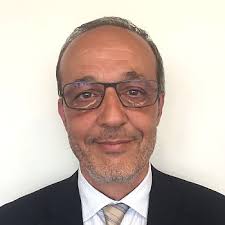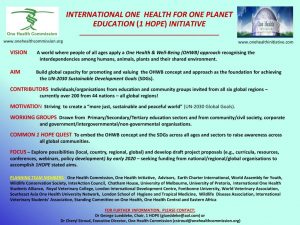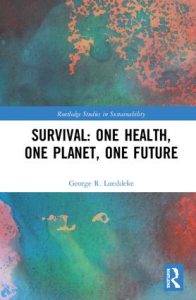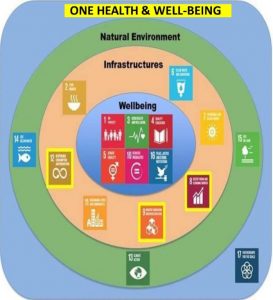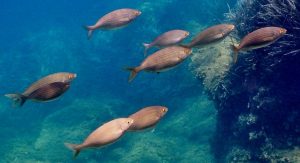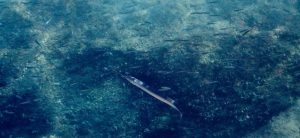How can local businesses wilfully help alleviate some of the everyday problems faced by individuals and families in SE Asian communities? What roles can local companies play and what strategies can they deploy to help promote their products and services, whilst also acknowledging and addressing the pressures that people face every day? This article tries answering these questions by a shared value approach whereby social pressures and problems are identified as the raw material from which to build a sustainable competitive advantage
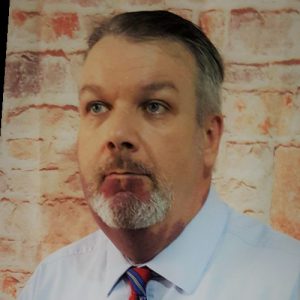
By Philip J Gover* BA MA MPH
Public Health Consultant
Cooperation Works
Reaching out and Engaging with SE Asian Communities
Health, Shared Value and Business in the Community
How can local businesses wilfully help alleviate some of the everyday problems faced by individuals and families in SE Asian communities? In an ever-increasing competitive environment, companies inform me that they are consistently looking for credible ways in which to connect with consumers, that allows them to both build mutually beneficial relations, whilst also delivering social outcomes.
Along these lines, what roles can a local company play and what strategies can they deploy to help promote their products and services, whilst also acknowledging and addressing the pressures that people face every day?
During a recent assignment with a local SME (Bottled Spring Water Company), I helped develop some ideas which were considered valuable in light of the aforementioned aspirations. I have provided some brief notes from this social development assignment which may offer ideas for other companies both locally and further afar.
Business in the Community
- Shared Value
In parallel with everyday operational and performance management activities, most companies are typically drawn towards ideas and options that help them to develop the market for their products and services. In view of this, companies often relaunch products and services, if only to refresh the important association that exists between them and their customer base. A number of regular and orthodox marketing tools and methods can be used to achieve this.
However, distinct from these typical methods and activities, it was noted that a different type of product relaunch could provide the company with an opportunity to do something socially different. Here, the product relaunch was intended to be used to inform the development of a more dynamic and engaging set of activities, that carry with it the prospect of delivering both customer loyalty and more sustainable socio-economic benefits, over the short, medium and long term.
In this approach, our proposed relaunch sought to consider the product(s) (bottled spring water), alongside the needs of the company, its customers, and the customers’ community environment.
At first, this might seem like a strange tactic to take. However, this approach enabled the company to engage in, and fully experience the lifeworld in which the customer and the customers’ needs exist. By fully engaging in these dimensions, the company wanted to both prepare and prime itself to exploit a richer depth of benefit.
Whilst this approach doesn’t seek to place every pressure and local problem at the door of every local company, it does offer a method by which companies can select and target pressures, based upon a considered assessment and prioritisation process. However, by collaborating with other businesses, using a similar methodology, this approach can become considerably more influential and powerful. A simple example can be given.
A mature company embraces this approach and considers the needs of the company, its customers, and the rural communities in which its customers live. The company chooses to print tokens on its product labelling, which guides and encourages customers to collect, on behalf of their children’s local schools. Upon redemption, participating schools are rewarded with books, microscopes or computers etc.
These types of incentives are important to both the company, customers and the community in which the customers exist. In the lifeworld of the customer, parents observe their children benefitting from enriched learning. The school benefits from closer ties with children’s families and increases its capability to teach and perform. Science is taught more robustly, and new learning quickly finds its way to discussions around the family dining table. A chain reaction of positive changes no less.
This type of business engagement also helps to reduce the educational inequality and disadvantage that besets customer communities. Changes in these areas bring increased hope and ambition to the lives of its population. Of additional importance, this range of benefits, which can be clearly measured and witnessed, becomes branded and attributed to the leadership of the company.
At present, many beverage companies in the community use customer reward programmes that involve ‘cash pay-outs’, or material ‘give-aways’ to ‘lucky’ customers. These simple gimmicks do little to reduce the preventable pressure on schools and communities, whose pupils will, at some future stage, represent the pool of local available talent. A talent pool that the company itself will depend upon, one day, for its future workforce. In this sense, the company engineers and reaps long-term benefits from an incentive scheme that promotes its product within the local educational base. By blending commercial interests with both customer and community interests, new and authentic customer relationships can be built.
- For the company, the value lies in the prospect of continuous increased brand awareness and customer loyalty.
- For the customer, value lies in the sense and feeling of improved cohesion within the family and community.
Fundamentally, this form of commercial cooperation builds and fortifies communities. If managed efficiently, this approach can provide the basis for a range of new commercial opportunities that stimulate growth.
In its simplest form, this overarching approach can be considered a mild form of ‘shared value’ and represents a management strategy that is being adopted today, by the most innovative companies throughout the world.
When shared value is adopted, the company becomes a valuable and enabling agent, both in the eyes of the customer and the community. When local businesses come together to pursue this collectively, in a coordinated manner, a circular and more sustainable economy evolves, that is capable of addressing social and economic pressures in transformational ways. This is nothing short of business leadership at its best.
In view of the market that is associated with bottled water, this type of activity could be of clear interest to a local Spring Water Company and represent an opportunity for discussion and decisive consideration.
- Opportunities for a Local Spring Water Company
Our company produces a valuable and familiar product, bottled mineral water. In a mixed marketplace. It competes in a space with a range of hot, cold, sugared, fruit-flavoured, caffeinated and alcoholic products, to name but a few. Yet, its unique selling point is valued and competitive. It is produced locally, at source, at a famous and historic site in SE Asia. It is mineral rich and healthy.
In view of this, and by adopting shared value, the Spring Water Company could lead, establish and benefit from advantages that help distinguish itself, from both rival and choice-based competing products.
As a starting point, it was suggested that the Spring Water Company consider the method and activities outlined above, and as appropriate, utilise the available training and development options, that exist, to assist companies in this area.
The shared value approach, and the distinct activities associated with it, is often prepared in advance of a focussed corporate event. A conference style relaunch event can often be used as a pinnacle event, to signal and announce both a new corporate motivation and desire to lead on new customer and community engagement methods. These events typically focus on, and reiterate a wilful emphasis around key themes:
- The company’s future depends on the authenticity of its customer engagement.
- Woven within the term sustainable development, is interdependence.
- Societal issues exist, which the company wants to influence, shape and change.
- That cooperation is a great equaliser.
- The future can be managed efficiently, using collaborative based partnerships.
There is an important and valuable point to note here, a note that companies are often unaware of. That is, there is no shame in communicating, with volume, to the outside world, that you want to grow your market, in partnership, and in doing so, help promote or prevent an important issue. This is not only what your customers want, it is what your current and future customers expect.
These focussed corporate events, used to relaunch products and services are effective at associating stakeholders, building partnerships and ‘calling for action’ on key specific issues. Establishing a public event of this kind, gives the company a unique opportunity to assemble a wide-ranging body of influential partners, stakeholders and cause specific champions.
Careful consideration should be taken in identifying and assembling this audience. Time well spent on this element, can have a multiplier effect both on the event, future activities and outcomes that evolve from them. Beyond this, these events create phenomenal media exposure and positive publicity, which the company, its customers and their communities can directly benefit from.
- Which Customer & Community Issues Matter Most
The Spring Water Company has a golden opportunity to engage with its customers and communities, in a number of new and authentic ways. In doing so, it can elevate its status and generate improved brand awareness. In the interests of its own future, it can choose to view and understand the vital-signs that surround its customers and communities.
In doing so, it can, through endeavour, become a company whose thought leadership is associated with social impact and innovation. It can, through commitment, become the transformational leader that its customers and communities’ want and value.
Yet in practical terms, how might this happen? What and where are the opportunities to both blend and engage in company, customer and community needs?
The precise answers to these questions invariably arise through an exploratory assessment of the needs of the company, its customers and the communities in which they live. However, some indicative ideas can be considered, in order to stimulate ideas and elaborate the overarching approach.
Given both the nature of the Spring Water Company product, and the circumstances that characterise SE Asia, health and education related issues present as obvious areas for consideration. It should be noted that these are not the only pressures or opportunities that could be engaged with or developed.
On an international level, the obesity epidemic is driving up the burden of several non-communicable diseases (NCDs) such as cancers, heart disease and diabetes. Given the remedial health benefits of physical activity and hydration, this is a clear entry point for the Spring Water Company. An entry point into the sports, leisure and recreation space to name but a few. Note, this entry point exists for the company, its customers and the communities in which they live.
As such, what would it take, for the Spring Water Company to use its management facilities to proactively encourage, lead and support the development of a project, in partnership with other companies and stakeholders, that established a new Mountain Bike workshop(s) across 6 key villages? Here unemployed adults and local young people could be taught to design, engineer, build, sell and race their own ‘Community Matters’ branded Mountain Bikes.
In a geographical area blessed with a welcoming mountain terrain, this type of community initiative could help develop multiple benefits. It could help ramp up physical activity, reduce road traffic, stimulate the development of clubs, cycle paths, improve tourism, and introduce bespoke manufacturing, technology, design and business acumen, to an otherwise eclipsed customer base. Furthermore, it is worth remembering that alongside every exercising body, is a happy thirsty soul.
The statistical prevalence of drowning in SE Asia has largely gone unnoticed in recent years. Given that the majority of the world’s children live in SE Asia, these statistics describe an issue that is nothing short of scandalous. These family shattering incidents occur in SE Asian communities every day.
As such, what would it take, for the same Spring Water Company to adopt this issue, and lead in partnership, a coordinated effort, to ensure that every child in Village X, Town Y or Provence Z, is taught to swim by the age of 5. By leading and working in partnership with parents, communities, schools and local businesses, wet facilities could be shared, commissioned or built, ensuring that a common, preventable and fatal risk was eliminated.
Whilst water can be understood as the basis for life, it can, given rogue circumstances, deny us of it. As health economists routinely point out, where the concept of prevention is absent, society in its entire guise, almost always pays a high and avoidable price.
Besides the extensive and life-long health benefits of swimming, the ability to swim provides individuals (customers) with a respectful association and positive attitude towards water. For many people in SE Asia, access to unadulterated food and clean drinking water is extremely challenging. Poor nutrition and dehydration carry real health costs, and account for the lion’s share of poor health. These are the primary risks that carry fatal conditions for many children, especially during the earliest and most important years of life.
What would it take, for Spring Water Company to acknowledge this association between food and water, and establish specific community-based learning facilities, where hydroponic and aquaponic technology could be demonstrated and shared? In partnership with communities, schools, hospitals and universities, these types of facilities could exploit a pent-up demand for lifelong learning and appeal to extended members of the family.
Hydroponic and aquaponic technology use specific methods, were nutrient rich water is managed and recycled, in order to produce a variety of fast cropping, fresh consumable food. Given the abundant availability of rooftop space, derelict land and unproductive communal areas, micro and urban farming represents a glowing opportunity to supplement health and arrest community-based food insecurity.
These types of activities not only support customers with limited resources, but also reduce the environmental impact associated with food related transport and distribution. With in-house water, science and technological knowledge, the Spring Water Company could assist, or be at the forefront of helping to reduce food insecurity. Thereby helping to contribute to a healthier and sustainable customer base.
- Summary
Shared Value is different from charitable giving. It’s also different from Corporate Social Responsibility. It distinguishes itself by identifying social pressures and problems as the raw material from which to build a sustainable competitive advantage.
For our Spring Water Company, associating with Health, Education & Prevention related development could provide a useful focal point from which to develop authentic customer and community engagement.
It is noticeable that GoPro blends its needs with its customers and communities and uses photography as a means to promote adventure. National Geographic does the same, using reading and documentary journalism as a means to promote science and discovery.
In this sense, a straight forward challenge exists for our Spring Water Company – what do you value most and what does your company stand for, and equally against.
For the most part, the answers to these questions typically exist within the Boardroom. However, the most valued answers can be uncovered by engaging with your customers and developing a deeper appreciation of how their lives, are lived in their communities. In this sense, the Spring Water Company can create its own version of shared value, and reap the sustainable benefits that derive from it.
———————————————————-
*Philip J Gover is professionally trained in Community Development, Public Health and Business Enterprise. Operating across SE Asia, Philip provides public private and NGOs with prevention, and development support around key public health themes. Contact: philip@cooperation.works Cambodia +855 092254595


